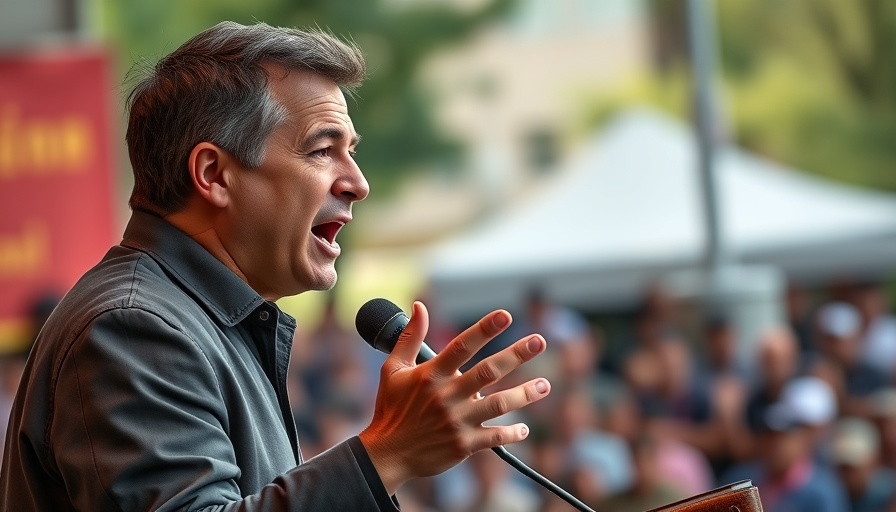
RFK Jr's Admissions Raise Concerns About Public Health Decisions
In a stunning revelation during a recent House Energy and Commerce Committee hearing, Health Secretary Robert F. Kennedy Jr. acknowledged that he did not fact-check his "Make America Healthy Again" (MAHA) report. This admission comes on the heels of an investigation that found many of the more than 500 sources cited in the document were non-existent, raising serious questions about the credibility of the report and the implications for public health policy.
During the heated exchange with Democratic Rep. Raul Ruiz, Kennedy was confronted about the accuracy of the report's citations. The back-and-forth highlighted the increasingly contentious nature of health policy discussions in the U.S., especially as the Biden administration pushes forward with significant changes to the nation's public health system. "How can you justify using data that’s not real?" Ruiz pressed, emphasizing the potential dangers of basing public health actions on unverified information.
The Public's Distrust: A Growing Concern
Kennedy's casual dismissal of the need for fact-checking has sparked backlash not only among lawmakers but also on social media. Many users have ridiculed him, comparing his adherence to unvetted information to a wayward conspiracy theorist instead of a credible health official. The implications are alarming; with public trust in health leaders already fragile due to misinformation prevalent during the pandemic, Kennedy's admission may further erode confidence in federal health directives. The criticism draws a parallel to similar incidents during the pandemic, where miscommunication resulted in harmful public perceptions and behaviors regarding vaccines and other health recommendations.
The Risk of Non-Existent Evidence in Policy Making
When policymakers rely on sources that do not exist, the ramifications extend beyond mere embarrassment. Public health prescriptions based on fictitious data could lead to misguided initiatives that might worsen health outcomes, especially when misinformation continues to spread like wildfire on social media platforms. As experts continue to stress the importance of evidence-based policymaking, instances like this raise the urgency for strict fact-checking protocols in health communication.
As society grapples with ongoing health crises and emerging disease patterns, the accuracy of the data governing our public health strategies is more critical than ever. Policies built on unstable foundations can undermine vital strategies like nutrition education, mental health support, and fitness campaigns aimed at improving community well-being.
The Role of Social Media in Amplifying Misinformation
The current era of hyper-connectivity and information overload complicates the public's ability to discern truth from falsehood. Social media platforms serve as breeding grounds for misinformation, and Kennedy's recent statements echo sentiments that are not just harmful but dangerous. Influencers and health activists must recognize their responsibility in ensuring that the information they distribute is accurate and actionable.
Instead of compounding the problem with questionable data, health leaders should focus on promoting wellness habits that are evidence-based and vetted by scientific inquiry. This is crucial in maintaining trust and guiding the public towards healthier lifestyles.
Calls for Accountability in Health Leadership
The exchange between Kennedy and Rep. Ruiz serves as a microcosm of larger issues facing health policy. As discussions around health equity, access, and credibility continue to shape public discourse, accountability amongst public officials is paramount. Missteps must not only be acknowledged but also addressed with transparency. As stakeholders in community health, we need leaders who demand evidence-backed strategies that aim to enhance overall wellness rather than exacerbate existing disparities.
In light of recent events, citizens may consider how best to engage with available resources for their health. Instead of relying on potentially misguided public health initiatives, local wellness programs, nutrition workshops, and physical fitness activities can offer actionable avenues for improving well-being in a community context.
Future Implications on Public Health Initiatives
The repercussions of Kennedy’s failure to fact-check could have long-lasting effects on public perception of health officials and policy. The dialogue around accurate representation of data is vital, not just to mitigate misinformation, but also to empower individuals with clear, reliable information that can foster healthier lifestyles.
As communities navigate this complicated healthcare landscape, the value lies in embracing solutions grounded in scientific truth. From nutrition to mental well-being, individuals and families can explore evidence-based practices that support their health goals. Encouraging such practices is an essential step toward empowering a healthy society.
In a world where information is constantly evolving, let's advocate for rigorous fact-checking and responsible communication in every conversation about health, wellness, and policy. Together, we can build a foundation of trust that leads to better health outcomes for all.
 Add Row
Add Row  Add
Add 




Write A Comment